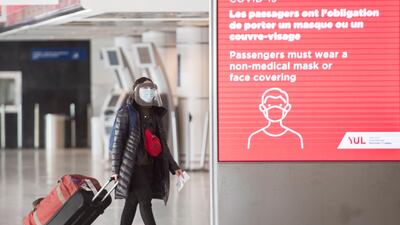It is no secret that the coronavirus pandemic has had far-reaching consequences on the travel industry – but new data from the World Tourism Organisation (UNWTO) suggests that it has set the industry back 30 years.
Global international arrivals fell by 72 per cent over the first 10 months of 2020, as a result of travel restrictions, depressed consumer confidence and global efforts to contain the Covid-19 virus.
This culminated in the worst year on record for global tourism.
Around the world, destinations welcomed 900 million fewer international tourists between January and October, compared to the same period in 2019. This translates to a loss of $935 billion in export revenues. Notably, this is more than 10 times the loss recorded in 2009, when travel was affected by the global economic crisis.
By the end of 2020, UNWTO anticipates that international arrivals will have declined by 70 to 75 per cent for the whole year – bringing the industry to levels last experienced in 1990.
And while news of a vaccine is leading to a slight resurgence in consumer confidence, the industry’s troubles are far from over.
“Since the start of this crisis, UNWTO has provided governments and businesses with trusted data showing the unprecedented impact of the Covid-19 pandemic on global tourism. Even as the news of a vaccine boosts traveller confidence, there is still a long road to recovery,” said UNWTO secretary-general Zurab Pololikashvili.
“We thus need to step up our efforts to safely open borders while supporting tourism jobs and businesses. It is ever clearer that tourism is one of the most affected sectors by this unprecedented crisis.”
International tourist arrivals to the Middle East dropped by 73 per cent between January and October, compared to 82 per cent for Asia and the Pacific, 69 per cent for Europe and Africa, and 68 per cent for the Americas.
Pololikashvili has called for a “co-ordinated approach to easing and lifting restrictions on travel”, when it is safe to do so.
“This will not only open destinations up to tourism again, but clear and consistent rules between countries will go a long way towards building back trust in international travel and boosting consumer confidence,” he said.


